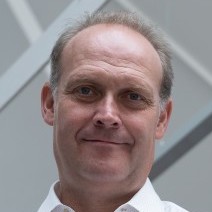As the leaves and the euro fall, confidence is emerging. I’ve been speaking this week at the economist infrastructure summit, which recognised that in uncertain times, investments in long term infrastructure and energy assets are a safe haven, and above all it’s UK innovation that will see us through.
With the Greeks laying on a Guy Fawkes spectacular for G20 and Ecofin meetings hammering the last rescue nail into the €-coffin, it’s difficult to stay focused.
However, the UK has scraped by posting 0.5 per cent quarter growth and FTSE executives have decided on a 50 per cent pay rise (according to the information company Income Data Services), which despite the opposition mumbles may not be greed, but a sign of brewing confidence after years of constraint. The UK has also benefited from an influx of hundreds of millions from Greek, Libyan and Arabic/north Africans buying premium London property as a safe haven.
In any case, after my prescient anticipation of a new break in physics in my last column, it’s time for our moixa technology smart grid venture to emerge from stealth mode and start to cash in on delivering a solution to the energy shortfalls ahead.
We’ve been exhibiting at events like Innovate 11, the annual Technology Strategy Board showcase of R&D grant assisted projects, 5plusforum in Paris, speaking between Toshiba and Intel on the future of energy in 2016, webcasts into the UKTI Smart Grids trade mission to Boston, and geek festivals like HomeCamp4.
Our aim is to power the increased proportion of low power DC appliances in homes such as LED lighting, computing, electronics and gadgets. We can at least keep the lights and ICT of Britain online from local renewables or night charged batteries.
Indeed with feed-in tariffs for PV panels being slashed in half last week as a Halloween special, it now looks like our tech could help installers and households get more benefit from their PV systems by using power directly with reduced losses for DC lighting and electronics, or via batteries to reduce buying grid energy at peak times.
With the need for additional funding to deliver our commitment of keeping the lights of Britain on, it’s time for some quantitative easing of our own. We’ve decided to put some of our non-energy intellectual property rights (IPR) patent portfolios up for sale to focus on energy.
We’re using the Sotheby’s of the patent world – ICAP Ocean Tomo, which is running a patent auction In San Francisco on 17 November. Moixa is among half a dozen UK companies selected for this, which includes the defence giant QinetiQ offering 30 patent portfolios.
It represents the age old story – the UK is world class at creating innovation and IPR, indeed were also second In the world across most science measures – as emphasised by John Armitt, the chairman of the Olympic Delivery Authority at the Economist event this week.
The UK’s biggest market for innovation is offshore and we are a leading exporter with over $12 billion in license/royalty sales in 2009 (vs. china receipts of $0.4 billion).
I’ll be diving deeper into IPR issues, creation, value, commercialising over the next month, as well as how the UK benefits from its innovation and creative ‘infrastructure’. And also how at the end of the day, this promises to keep Britain afloat in a world where talent is commoditising and globalising.
In the meantime, as typically happens following any events and PR, we are snowed under with constant calls and spam from head-hunters offering resources and event companies trying to sell over-priced SME tickets to cleantech events, after all it’s usually those selling the shovels and services that make money, and sometimes I worry that that’s all the UK is these days.
Let’s hope the eurozone survives until Christmas. After all the solution is very simple, for debt laden Greece, Italy and indeed California – just introduce a wealth tax of 5 to 10 per cent, but provide 100 per cent relief against this if you hold 5 to 10 per cent of your wealth in national debt and a new domestic infrastructure bond on long term projects.
A unique localised hedge that encourages the wealth owners to ensure their politicians and country debt doesn’t become toxic.
Simon Daniel is the inventor of the USB battery and folding keyboard. He’s also CEO of Moixa, a fast-growing renewable energy group.






